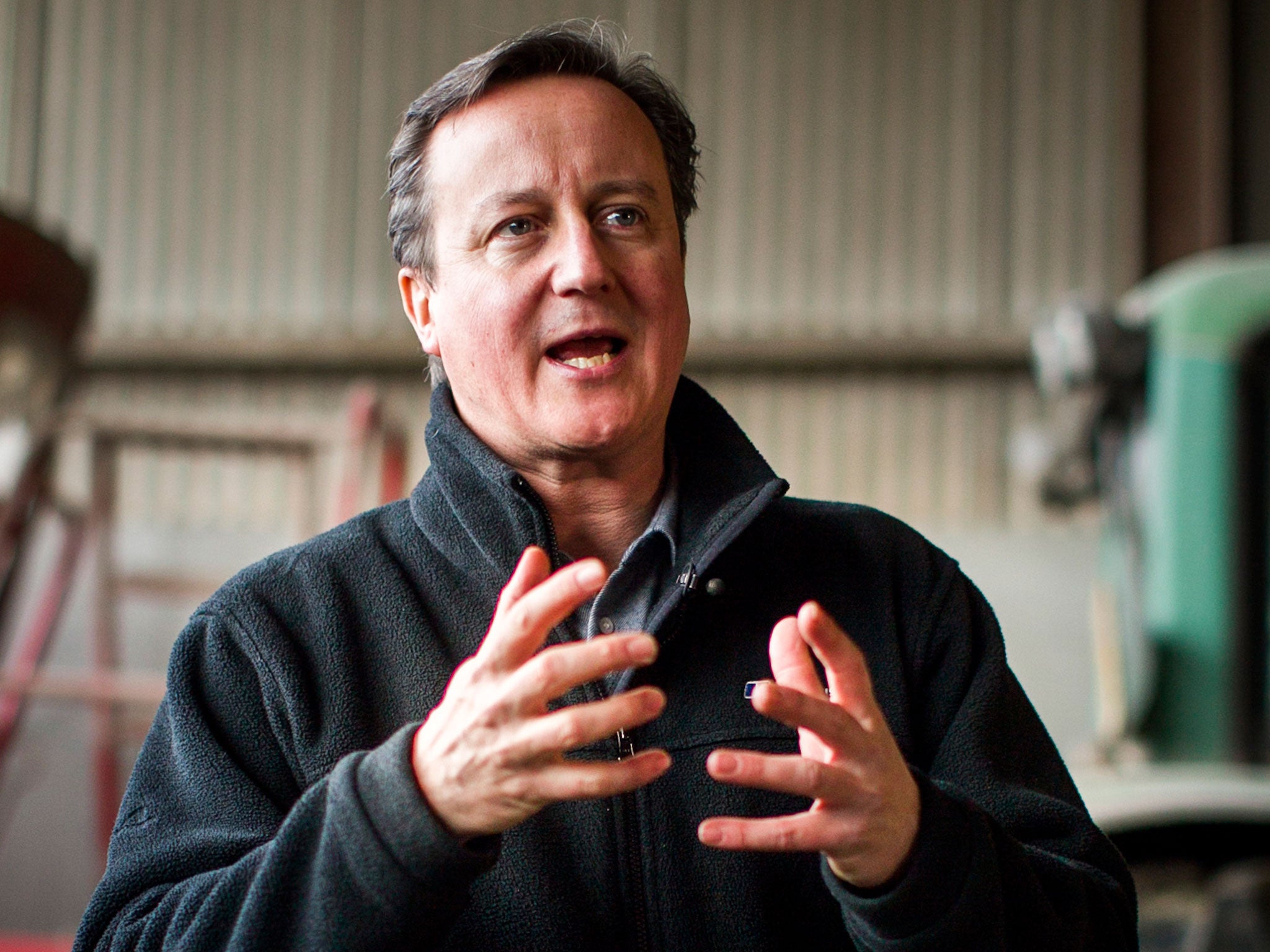David Cameron hasn't benefited from his father's offshore trust? Perhaps he got through Eton on a paper round
In the modern world, wealthy people can decide how much their tax bill comes to. Maybe we can extend this rule to other items, such as cheese


Anyone with compassion reading this week’s tax avoidance story must feel immensely sorry for David Cameron.
The Prime Minister claimed yesterday morning that he had not benefited from any money that his father may have saved through offshore tax accounts. No inheritance for the young David? His dad must have been a right bastard. Perhaps Ian Cameron – who amassed his fortune of £10m, some of it through placing his money in the Bahamas to reduce his tax bill – didn’t spend a penny on his son. The Prime Minister must have put himself through Eton on a really big paper round.
It’s no wonder that he insists the country must be careful with money, after he spent his youth pleading, “Dad, can I have 80 pence for my bus fare to the Bullingdon Club ball where we squirt cat sick at midgets?” and was told “No you bloody well can’t. If you want your own money, set up a trust in the Virgin Isles.”
You can tell how embarrassed the Prime Minister is about his dad’s behaviour, because he said his dad’s finances were a “private matter”. After all, his dad was a private man; so private, that is, he even kept his finances private from the British tax office.

The Prime Minister was quite clear at first that he had not, and will not “in the future”, benefit from any offshore trusts. And that, after all, is a much fairer way of assessing behaviour than the old-fashioned method our legal system is based on, which concerns itself solely with the past.
With this approach, a defendant could reply to the question “Did you break through a wall and rob Hatton Garden?” by saying “Look, I’ve been through this several times and let’s be absolutely clear, I stand to gain nothing from robbing any jewellery stores in the future.” And off they’d go.
It’s touching to see our Prime Minister defend his father, even after admitting he had, in fact, benefited from his income. Hopefully if Jeremy Corbyn asks him any questions about him, Cameron will reply: “I’ll tell you what my father would have said – ‘do your tie up, sing the National Anthem, and spirit millions of quid away in the Bahamas so none of it gets taken and used for frivolities like treating cancer’.”
You can’t blame anyone for the actions of their parents, and that must be why the Daily Mail, as a sensitive family newspaper, isn’t making a big fuss about this issue. It’s true they declared Ed Miliband’s dad was “The man who hated Britain” - but that was a matter of national security, as he’d fought for Britain in the war, proving he was prepared to take up arms which could have proved lethal if he came back to life and then became a Jihadist. But Cameron had simply tried to help out our overworked tax clerks, by leaving them with small numbers to add up rather than big complicated ones that can take all day.
George Osborne was even clearer about whether he benefited from tax avoidance schemes, saying: “As I’ve said, all of our interests as ministers and MPs are declared in the register of members’ interests and we’ve made our position very clear,”
So he was asked again, and replied: “As I said this Conservative government has done more that any Labour government or any previous government to tackle tax evasion.”
If he was asked again he’d probably say: “I told you already, I never go cycling on an empty stomach.” And then: “Look, how many more times? Beenie Man is my favourite dancehall reggae artist. Now I have an important meeting to attend. Good day.”
Everyone connected with these trusts insists they’ve ‘done nothing illegal’. It’s a refreshing attitude, as you can get fed up with people worrying whether someone’s behaviour breaches any code of morality. Presumably, if the wife of one of these businessmen came home to find them having an orgy with the entire cast of Emmerdale in a room mocked up to look like Anne Frank’s attic, they’d say, “Alright, don’t make a fuss. I’ve not done anything illegal.”
In a modern world, it’s far more appropriate if wealthy people can decide how much their tax bill comes to, rather than be constrained by the stuffy old system of being told by the government how much to pay. Maybe we can extend this rule to other items, such as cheese. If you can afford it, register a cheeseboard in the Cayman Islands and then you’re allowed to take as much cheese as you like for four pence a year.
And before anyone gets preachy, as many people have pointed out, we all do it. Grandparents buy their grandchildren an ice cream knowing that, if they kept that money, there might be inheritance tax to pay on it when they die. Is this any different from setting up a series of offshore businesses to channel £50m into Guernsey to avoid contributing towards dialysis machines, so you can spend the money on getting Beyonce to perform live for your daughter’s birthday party?
So let’s leave the offshore trusts alone. Because if we start clamping down on billionaires who avoid paying tax to Britain, they might leave the country and avoid paying tax to somewhere else. And then where would we be?
Join our commenting forum
Join thought-provoking conversations, follow other Independent readers and see their replies
Comments
Bookmark popover
Removed from bookmarks